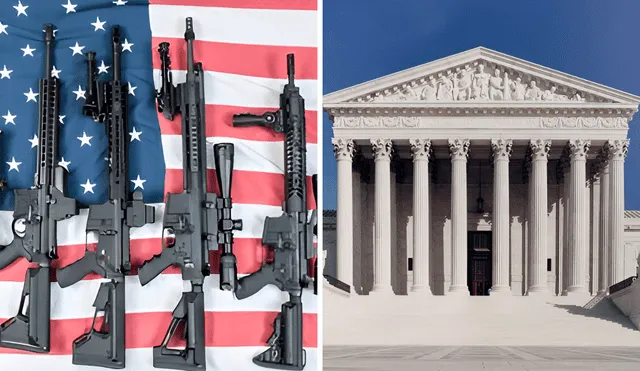Supreme Court declines cases on AR-15, high-capacity magazine Bbans in Maryland and Rhode Island
Supreme Court leaves in place bans on assault-style weapons and large-capacity magazines in key states.

On Monday, the U.S. Supreme Court declined to hear two prominent gun rights challenges concerning the bans of assault-style weapons and high-capacity magazines. The cases dealt with a Maryland law banning AR-15-style rifles as well as a Rhode Island law banning magazines that hold more than 10 rounds.
Even with a 6–3 conservative majority that has expanded gun rights in recent years, the justices declined to weigh in. Therefore, both of these state laws are still in effect while similar legal battles are ongoing in lower courts around the country.
Gun law challenges rejected
Maryland's law against assault-style weapons, including the AR-15, was passed in 2013, following the Sandy Hook school shooting and upheld in 2022 by the 4th U.S. Circuit Court of Appeals. The 1st U.S. Circuit Court considered the law under the Supreme Court's 2022 precedent, which expanded the right to own firearms beyond the home. The appeals court found that the more than 100 firearms covered by the Maryland law were comparable to military arms unsuitable for civilian defense.
Rhode Island's own law passed shortly before the 2022 Supreme Court ruling limits magazines that can hold more than ten rounds. The Rhode Island law was upheld in lower court challenges following appeals by several gun owners and a local firearms dealer.

Millions of people own the AR-15 rifle due to the ease of selling firearms in the United States. Photo: GLR Composition/NBC News
Justices signal future interest
While the Court did not grant review in the cases, numerous conservative justices expressed a desire to consider the matter in the near-term future. In a separate statement, Justice Brett Kavanaugh stated that the Maryland decision was "questionable" and that a similar case should be taken up by the Court "in the next couple of years." He stated that many millions of Americans legally own AR-15s and that Maryland's law was an "outlier."
Justices Clarence Thomas, Samuel Alito, and Neil Gorsuch all indicated support for reviewing the Maryland ban. Thomas wrote a dissent that said it was "hard to see" how the state's ban was consistent with the Second Amendment using the Court's current framing, invoking the Court's 2022 decision as a trigger for concern.













